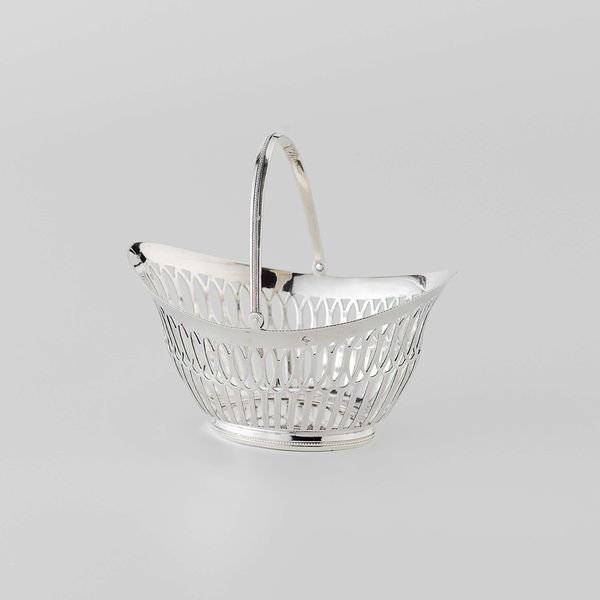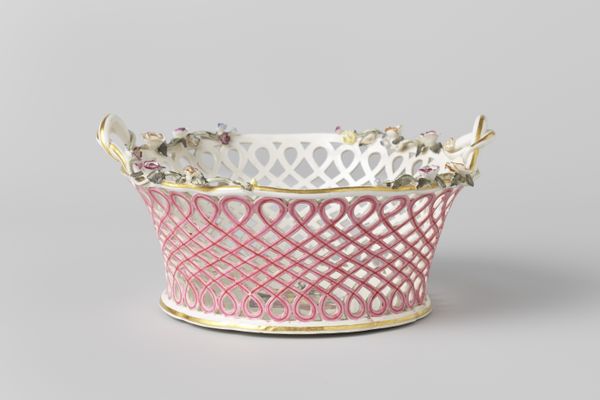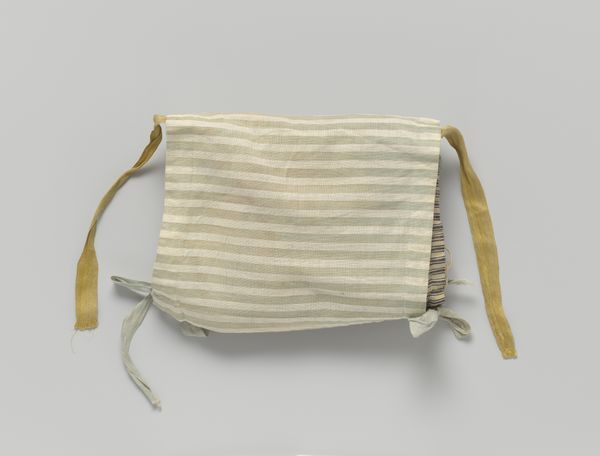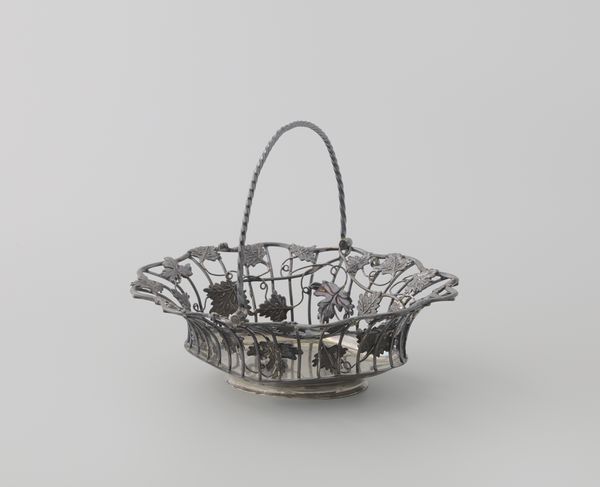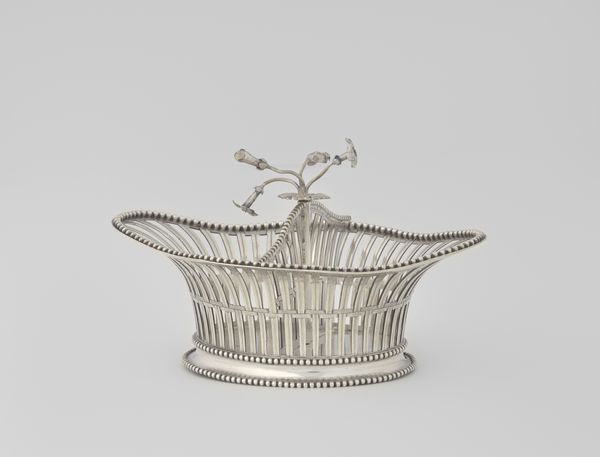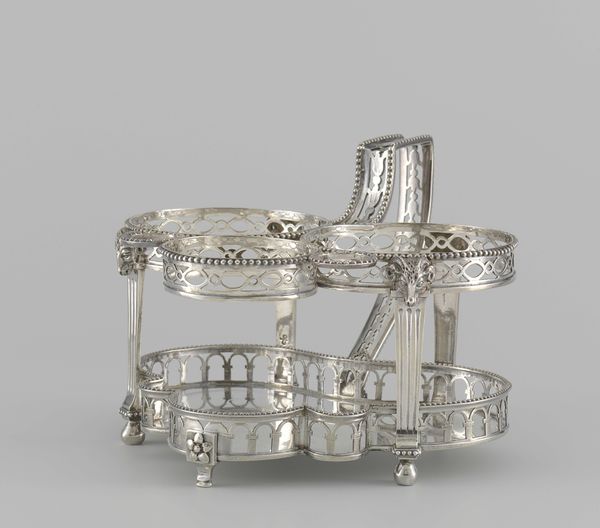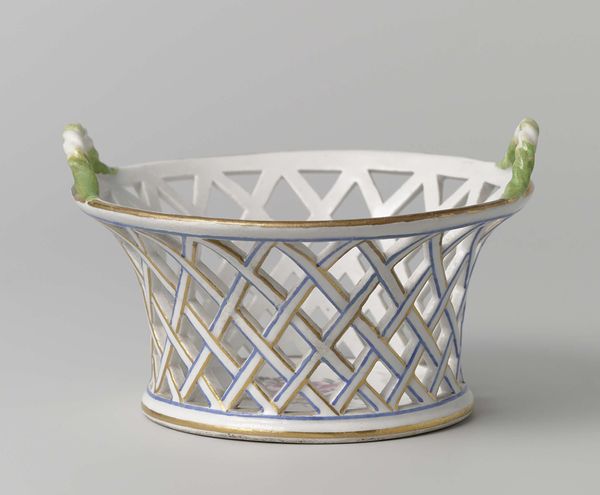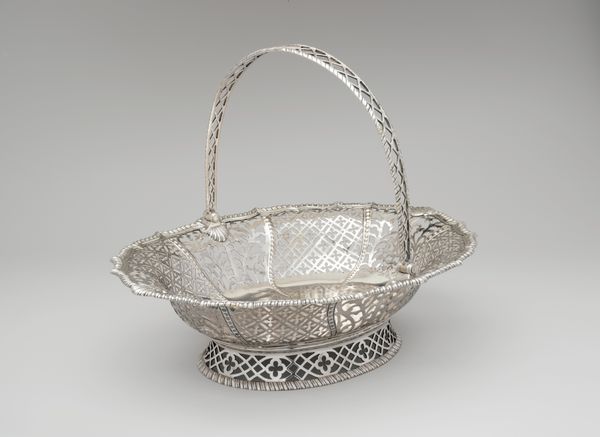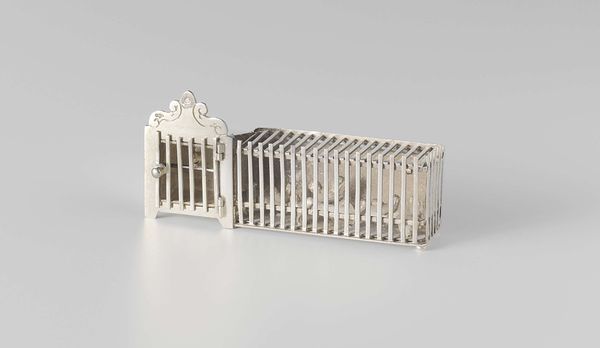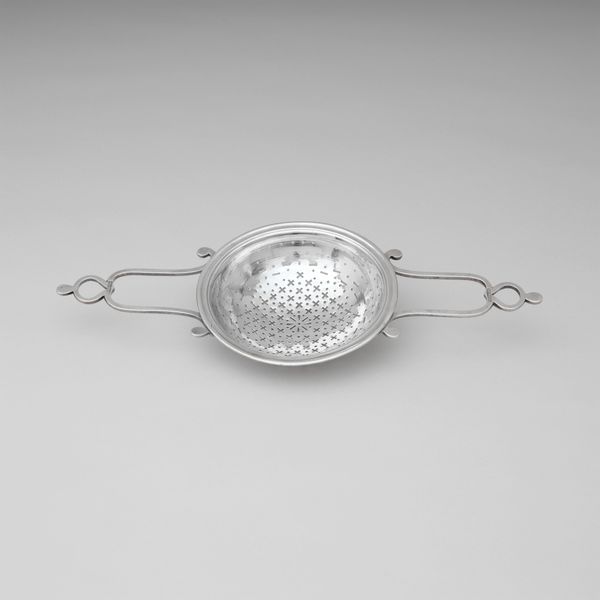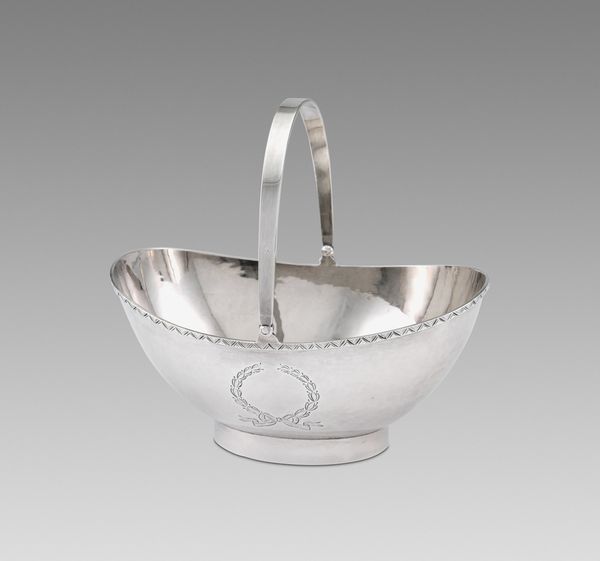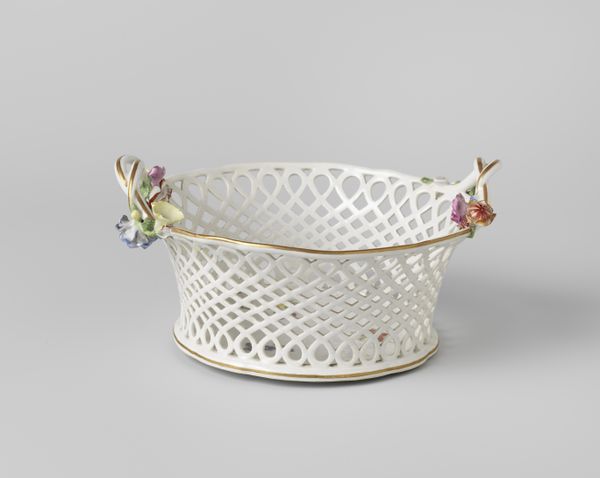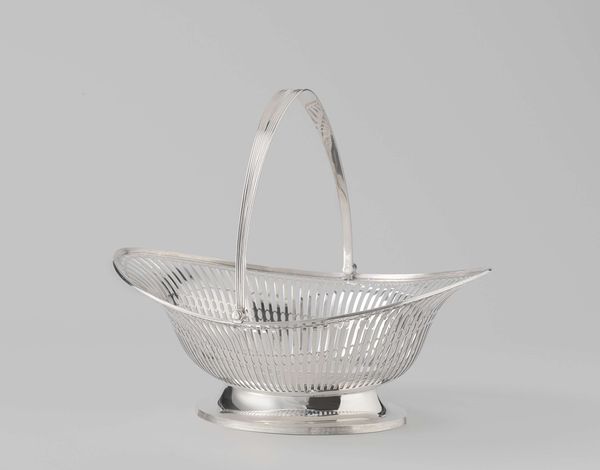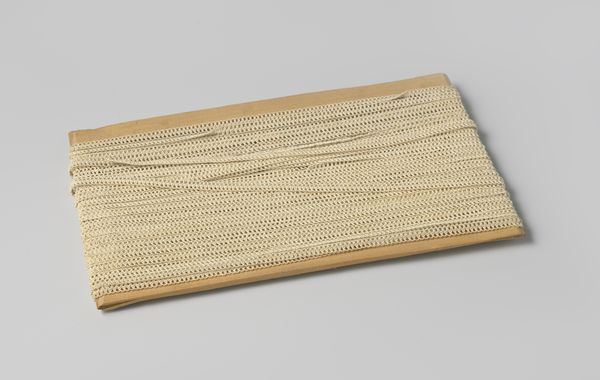
Dimensions: height 4.4 cm, length 6.2 cm, width 4.6 cm
Copyright: Rijks Museum: Open Domain
This silver miniature of a baby carriage was created in the 18th century by Martinus van Erkel. During this time, the Dutch Republic was a major economic and cultural power, but also a society with stark class divisions. Consider how this tiny, precious object reflects the values and material culture of the wealthy elite. A symbol of new life, cradles were often adorned and crafted from expensive materials, underscoring the family’s status. Van Erkel's detailed work transforms an everyday object into a symbol of luxury, reflecting the societal emphasis on wealth and lineage. This piece invites us to reflect on the complex history of childhood and family. What were the experiences of children from different social classes? What role did objects like this play in shaping identities and reinforcing social hierarchies? Van Erkel’s silver cradle reminds us that even the most intimate objects can reveal broader truths about power, privilege, and the human condition.
Comments
No comments
Be the first to comment and join the conversation on the ultimate creative platform.
